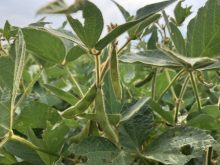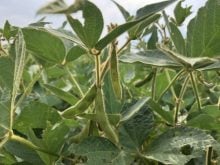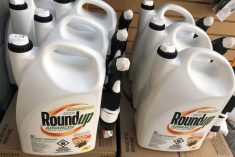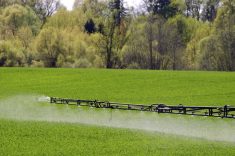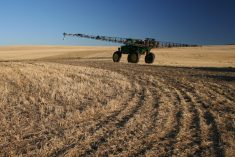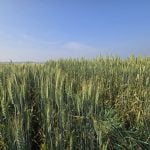Reuters — Monsanto’s efforts to expand its agrichemical interests beyond what has long been its bread-and-butter glyphosate business were underscored on Wednesday by news the company plans to invest potentially more than US$1 billion in production of an alternative herbicide.
Monsanto officials expect to spend the money over the next three to five years expanding a plant in Luling, Louisiana, to produce dicamba. Luling, near New Orleans, has been a key location for glyphosate production for years.
The interest and investment in dicamba represents a step away from the company’s reliance on glyphosate, the key ingredient in Monsanto’s Roundup line of herbicides.
Read Also
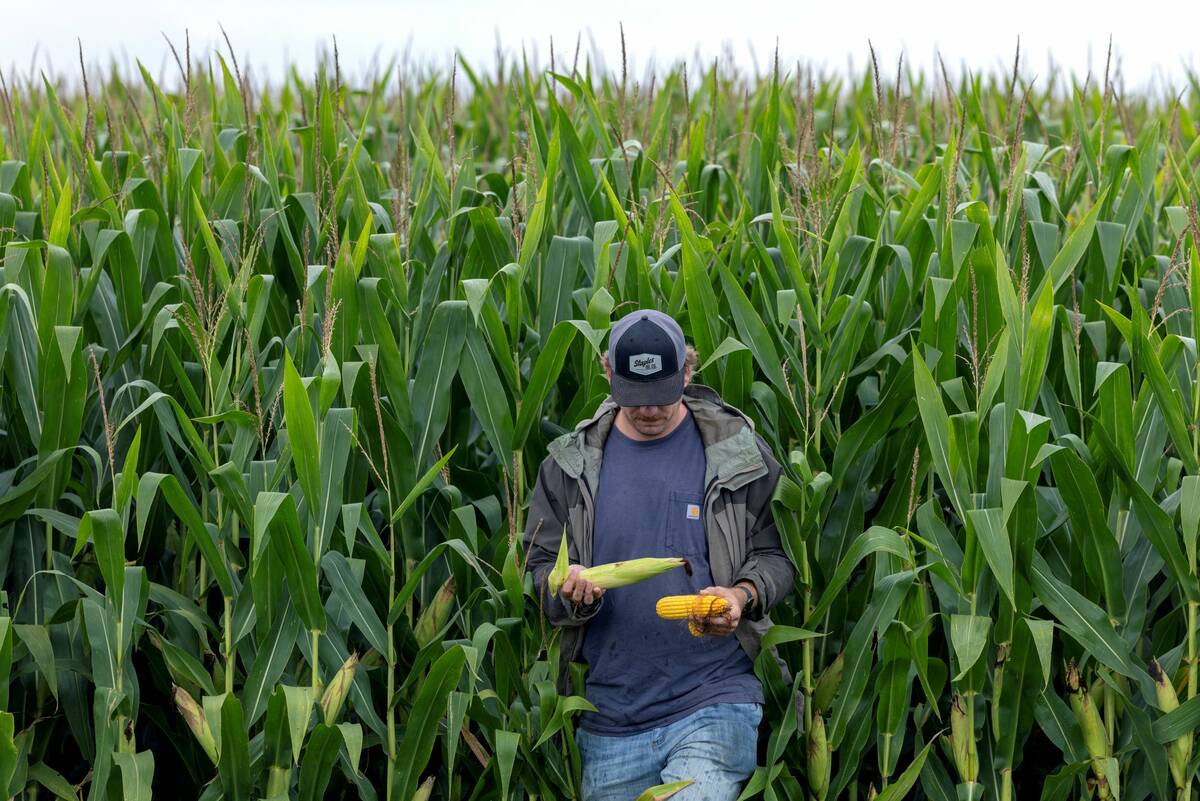
The U.S. corn crop could be the biggest ever. That’s terrible news for America’s farmers.
The USDA predicts a record corn crop for U.S. farmers, who question the agency’s accuracy amidst high debt and low crop prices.
Glyphosate is also the key to many of Monsanto’s genetically engineered crop lines. The company makes corn, soybeans, cotton, canola and other crops that can tolerate being sprayed with glyphosate.
“Over the next decade… this holds the potential to further diversify our ag productivity segment and provide a source of growth longer term,” Monsanto president Brett Begemann told analysts in a conference call.
Roundup, and the Roundup Ready crops Monsanto engineers, have been very popular with farmers, particularly in the U.S. However, widespread planting of Roundup Ready corn and soybeans, and associated widespread use of Roundup, has contributed to the rise of weeds resistant to glyphosate.
The weed resistance problem has become such a significant problem for crop production that farmers are seeking alternatives, and Monsanto and its rivals are racing to introduce new options for glyphosate and Roundup Ready crops.
“The reality is the industry is going to have to continually evolve just like plant life evolves,” said Edward Jones analyst Matt Arnold.
Monsanto’s solution combines glyphosate with dicamba for its Roundup Ready Xtend crop system, aimed at soybean and cotton farmers.
Rival Dow AgroSciences has developed crops that tolerate its new herbicide, which combines 2,4-D with glyphosate.
Monsanto said it sees at least a 200 million-acre “practical fit” for its Roundup Ready Xtend system for soybeans and cotton in the Americas.
The company said Wednesday it still awaits approval from Chinese regulators to allow imports of the new soybeans. China is a key buyer of U.S. soybeans, but has shown reluctance to approve imports of new GMO crops.
— Carey Gillam is a Reuters correspondent covering agriculture and agribusiness from Kansas City.



